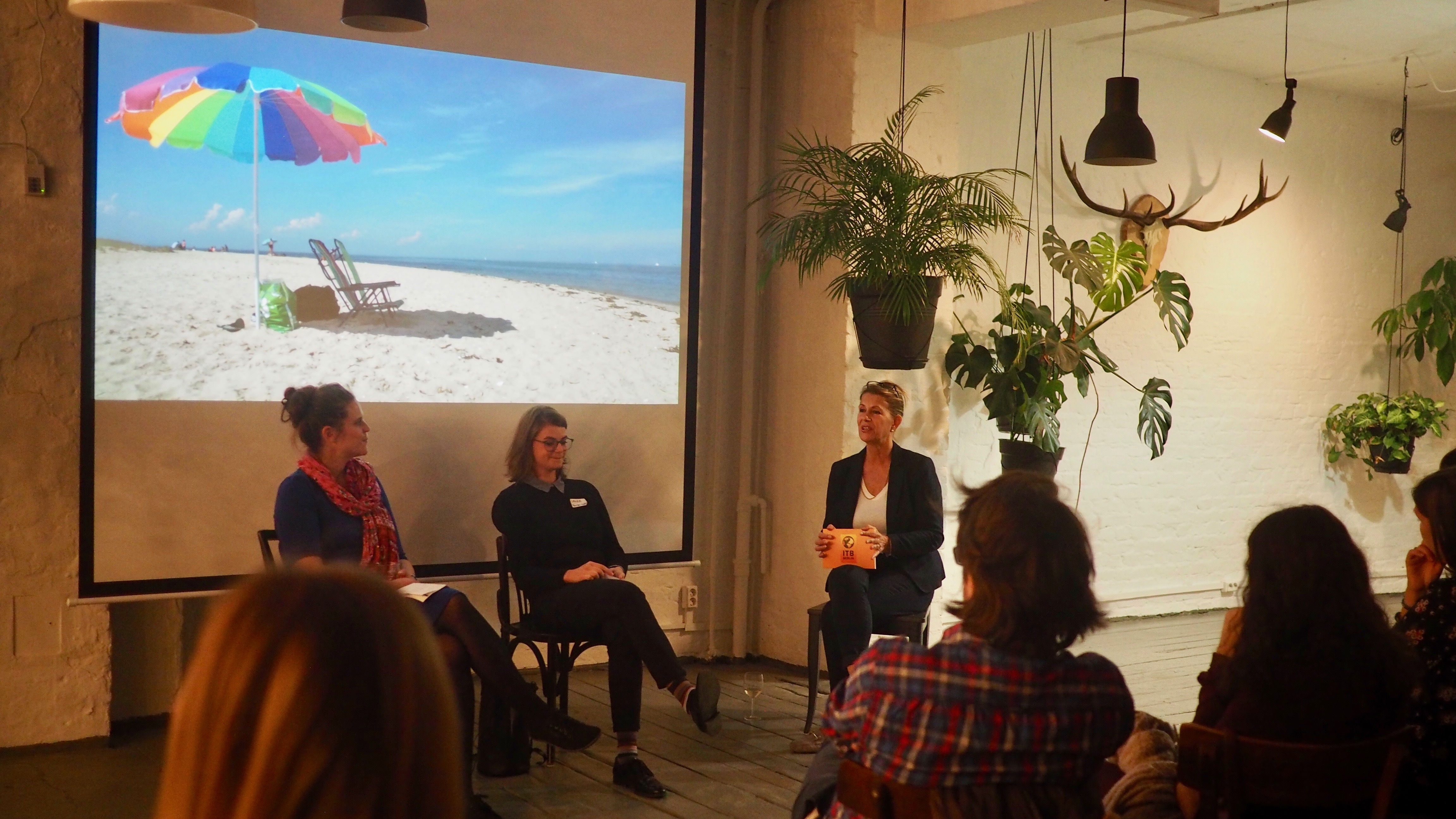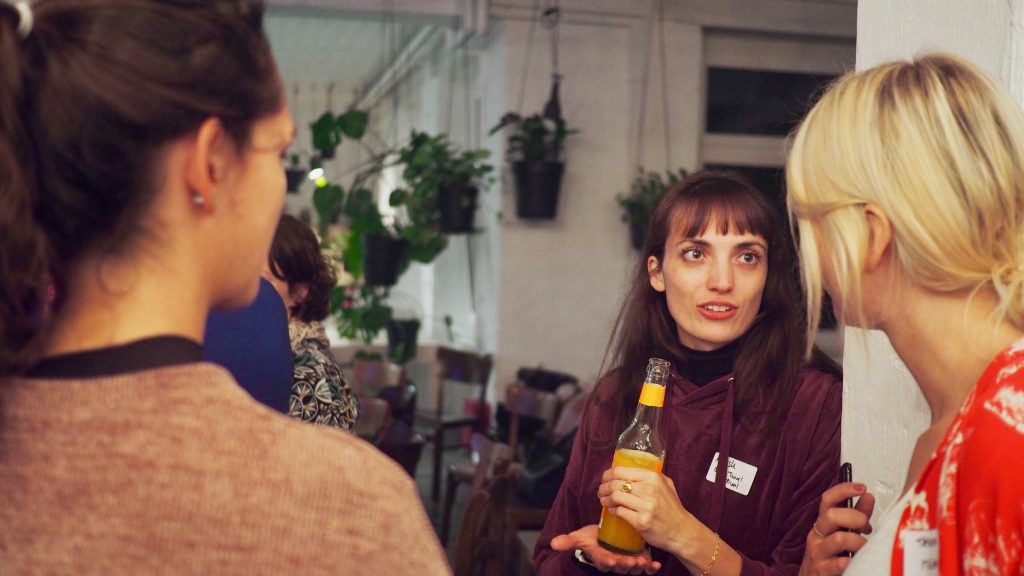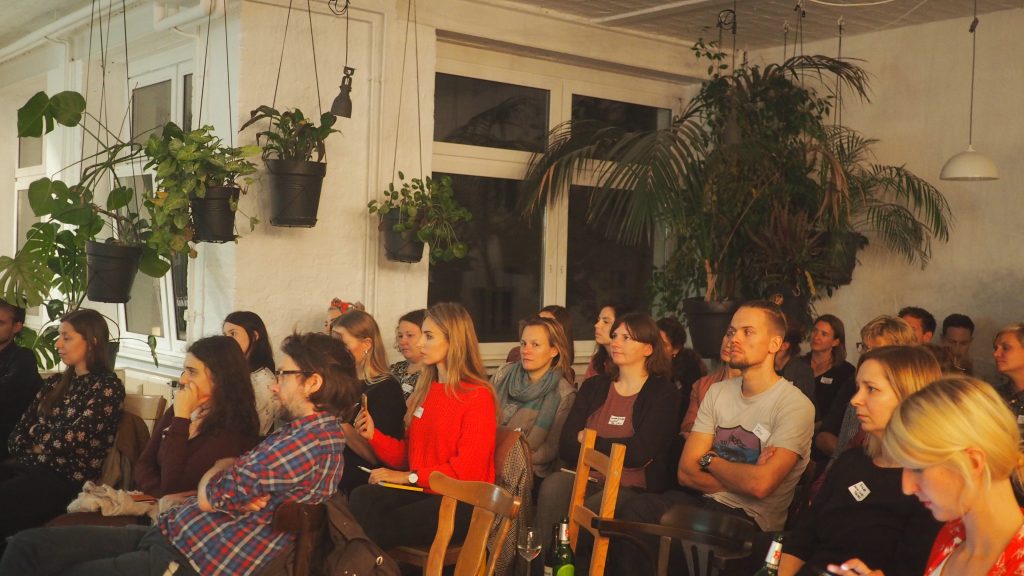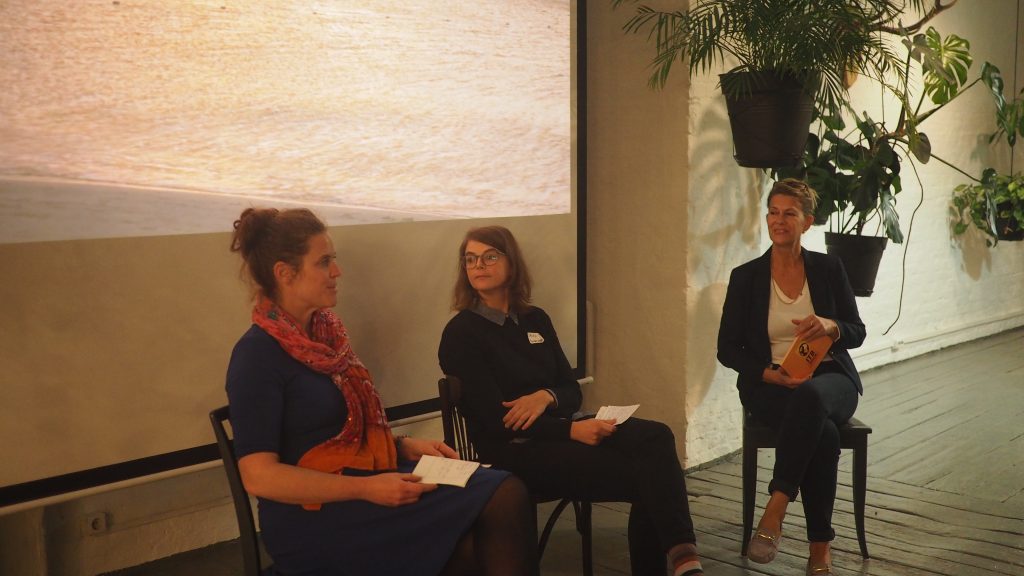Event Recap – Berlin talks Sustainable Tourism
On October 18, Berlin Travel Massive met to discuss the important topic of Sustainable Travel and specifically how to protect our oceans.
This event recap was written by Lisa Hübner, a travel PR & marketing specialist and co-chapter lead of Travel Massive Berlin.
The event was set up as a panel discussion moderated by Rika Jean-Francois, responsible for CSR (Corporate Social Responsibility) at ITB Berlin, the event sponsor. Thanks also to the venue sponsor LIANE, who provided us with their urban jungle space.
Our panelists were:
• Susana Ceron Baumann of Ventura Travel, a sustainable tour operator
• Laura Jäger of Tourism Watch, a special desk of Bread for the World committed to sustainable tourism
• Madeleine von Hohenthal and Benjamin Wenke of Bracenet, a company manufacturing ghost nets into bracelets
Since Madeleine and Benjamin were unable to join as in person, they introduced their organization during the second part of the discussion via Skype. Here’s a summary of what we learned:
What surprised you when you first started working in sustainable tourism?
Laura: “I was surprised by how little debate there is about the social impacts of tourism, how it affects people.”
Rika: “People think they are environmentally friendly but most companies, especially the bigger ones, are not quite there yet.”
Susana: “I first worked in mass tourism and only knew about sustainability in theory. Working for a sustainable tour operator now, also changed how I behave in my private life.”
How can mass tourism and sustainable travel come together?
Rika: “Tourism depends on the environment, everywhere. Access to information for consumers is improving and digitalization helps raise the issue around the world (for example videos of giant piles of garbage in the ocean appearing in the traditional and new media). Since our oceans touch everyone’s life this is our chance to raise awareness.”
Laura: “Small things can make a big impact just due to sheer numbers in mass tourism. Many companies have picked up on the issue but there’s still a lot of green washing. The industry is taking baby steps but big strides are needed to initiate change. A main issue is that the political commitment is missing. At the same time, little entry points can trigger the bigger discussion.”
What trends do you see? What guidelines can be implemented?
Laura: “Voluntourism as a trend in sustainable travel is good and bad – travelers need to have realistic expectations in that you can’t change the world on a 2-week vacation.”
Susana: “Eye-to-eye contact with locals is becoming increasingly important for many travelers. Ventura created a document provided by Tourcert on “What does it mean to be a sustainable traveler” together with the travel documents. They have also implemented a refilling system for reusable bottles in Ecuador. In addition, they use a checklist to evaluate their local partners worldwide.”
How to implement your CSR strategy?
Rika: “CSR needs a holistic approach, where all the stakeholders work together.”
Susana: “Companies should ask themselves if they are paying their staff fair wages on an official contracts and offering their partner long-term relationships.”
Laura: “Organizations need be aware of the impact they have on others, both planned and unplanned, and should work within global frame works, such as Agenda 2030.”
How to save our oceans?
As an introduction to the second part of the discussion, a short video highlighting the devastating effects of marine pollution was shown:
Here are some of the sad facts:
– 10 million tons of litter of dumped in the seas every year, 400 kilos per second
– By 2050, our ocean could contain more plastic than fish
– Plastics alone are killing one million sea birds and 100,000 sea mammals a year
– With 80% of marine litter coming from land sources, everyone is responsible
Bracenet tackles the issue, works with travel companies
Ghost nets are also a big problem – for instance, the huge garbage patch in the Pacific, which is four times bigger than Germany, is made up of 46% ghost nets. Bracenet focuses on this problem and makes ghost nets into bracelets. Here’s what Madeleine and Benjamin told us from Hamburg:
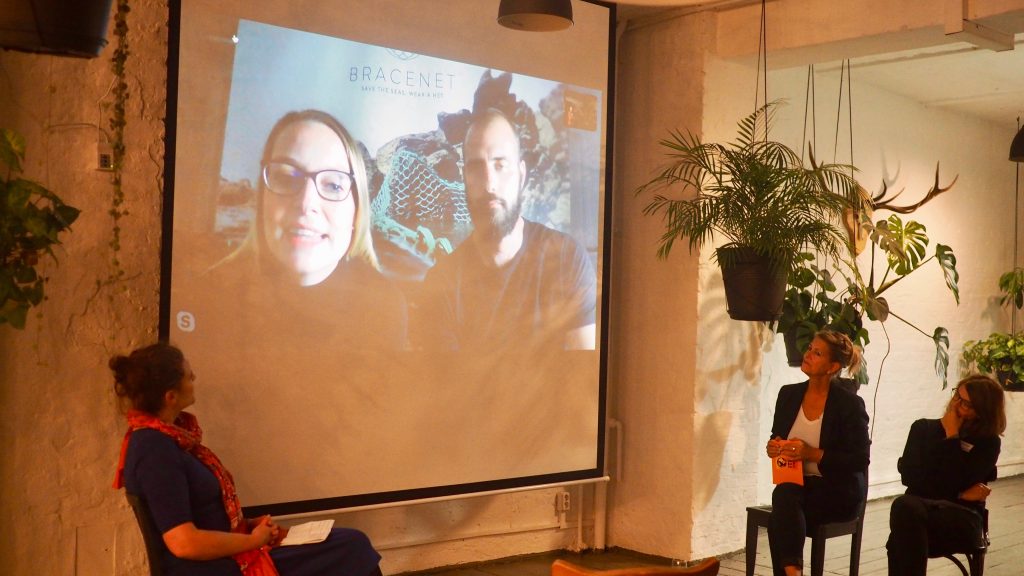
Madeleine and Benjamin founded Bracenet three years ago after learning about the issue on a diving trip to East Africa. Upon returning to Germany, they used their savings intended for an around-the-world trip to start the company.
Working with their partner organizations Healthy Seas and Ghost Fishing, which retrieve the nets, and the company Nofir, which cleans and prepares them for future use, they have turned roughly three tons of ghost nets into bracenets so far. Out of their proceeds, they donate 10% to Healthy Seas, which pays for the retrieval missions, training and also prevention.
As their business has grown, they’ve partnered with workshops for disabled people in northern Germany to produce the bracelets. Those nets that are not turned into bracenets are made into ECONYL, which is used for clothes and rugs.
They have recently also started working with corporations to develop sustainable internal strategies. For example, they have helped Icelandair develop their first plastic-free flight by introducing reusable cups and creating storage nets out of old fishing rope. As another example, German airline Condor shows their movie on their international flights to raise awareness and explain the issue.
The panel discussion was then continued with some practical examples and solutions:
How much is tourism responsible for ocean pollution?
Rika: “Plastic and pollution are symptoms of the industry’s structural problems. You can travel in way so that plastic is not a problem – mainstreaming it is the challenge. Tourism has a strong voice that needs to be heard, associations can help.”
Laura: “Tourism relies on the beauty of nature and authenticity of the people, making it an important entry point. But many travel products are not sustainable (for example travel-sized shampoo bottles or the large of amounts of food waste at buffets).”
How can tourism help?
Susana: “The big players need to start prioritizing sustainability over economic aspects, for example by choosing the more sustainable partner even if they may be a bit more expensive. Value(s) over price. Also, governments need to take over responsibility.”
Laura: “There’s a lot of potential to do things right – and wrong. Tourism players need to focus on the local population and involve them from the very start to create meaningful and sustainable touch points with the locals and build bridges between global north and south.”
Rika: “We need people and organizations to fight for sustainable development goals such as tourism agendas.”
What can we all do?
Susana: “As consumers (and travelers), we need to be more aware. One way is to contribute to foundations and book with sustainable tour operators that can help the local communities.”
Rika: “Think of the 6 Rs – Reduce, Rethink, Refuse, Recycle, Reuse, Repair.“
Practical tips from the panelists and audience
After the panel, everyone shared some ideas on how we can each do our part:
- Make your next trip a bit longer, travel less often
- Use apps to scan product ingredients to learn about micro plastics
- Don’t buy single use items
- Buy products made out of recycled plastic (such as backpacks)
- Use a special laundry net that collects micro plastics from clothes
- Use mineral sunscreen
- Go plastic free with beauty products
- Don’t eat fish, so there won’t be nets
- Use the app “Refill my bottle” to find stations, especially in countries with non-potable tap water
Thanks to everyone for joining this important discussion!
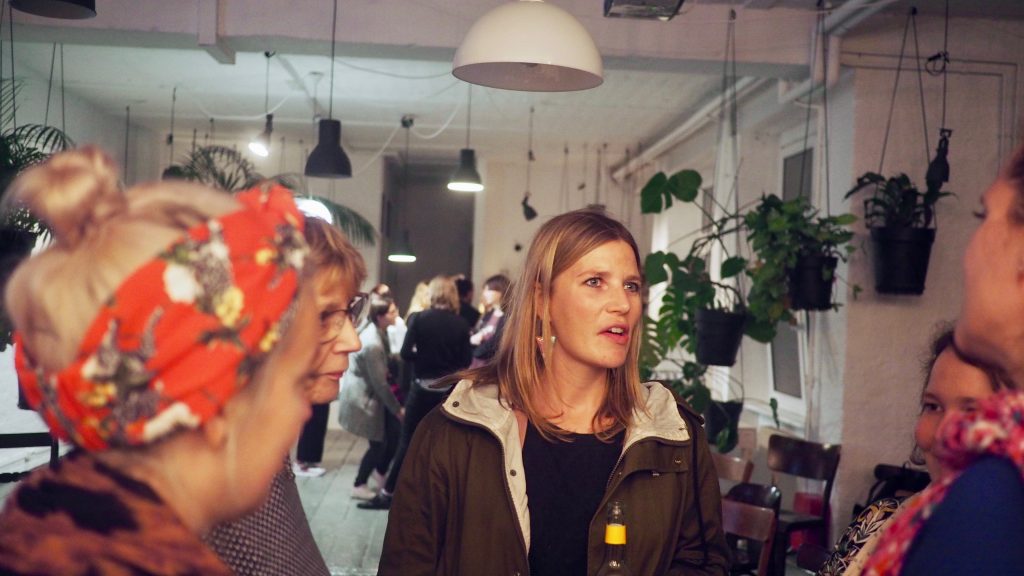
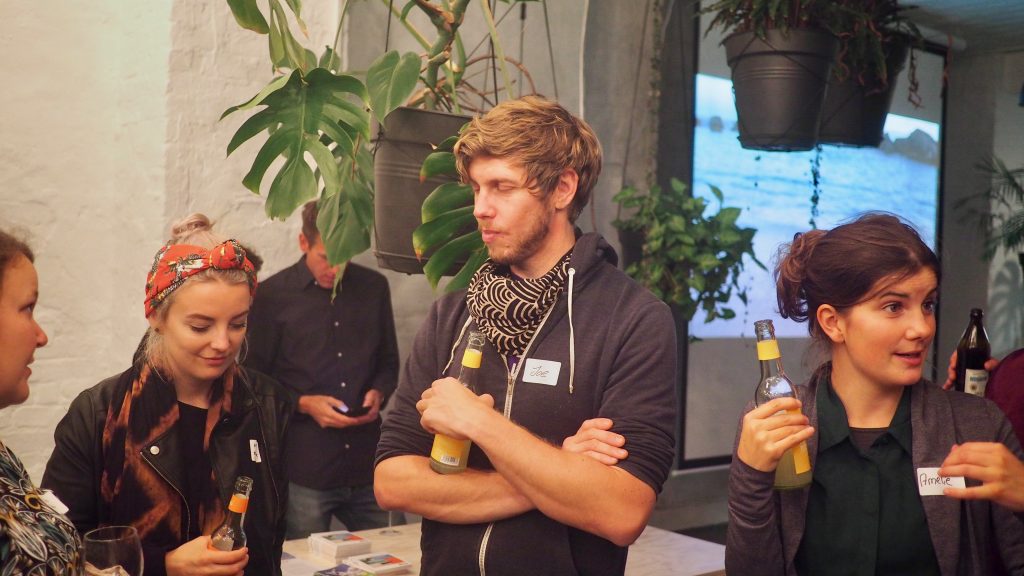
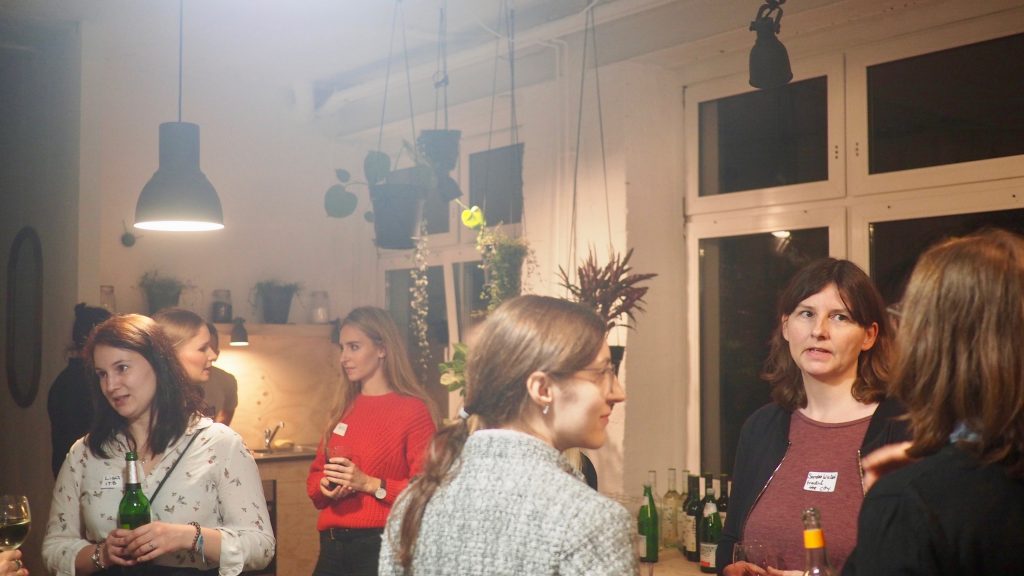
Join Berlin Travel Massive to connect with the community and get updates for future events.
👋 This article is archived. Take a look at our new website.
